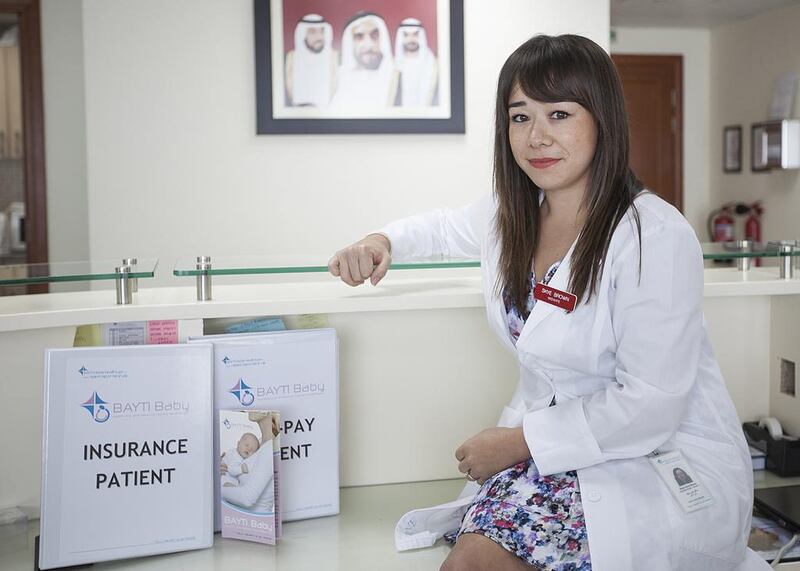ABU DHABI // Experts are calling for health insurers to cover a home midwifery service for mothers and newborns in an effort to prevent post-natal problems.
The service would monitor mother and baby and provide psychosocial backup and feeding support.
A nursing company in the capital has a division that takes care of post-natal issues but none of its services are yet covered by insurance.
Dr Meltem Tank, a specialist in gynaecology and obstetrics at the Swedish Medical Centre, said such a service would best benefit first-time mothers, or those with a long gap between children.
“We find out new approaches and techniques very often, so a mum whose last baby was born many years before might not be up to date,” she said.
A home-based midwifery service can prepare and equip mothers, as well as help them to understand the baby’s needs and how to best take care of their child. It also allows midwives to give new mothers and their families information and advice that is appropriate to their circumstances.
“It will absolutely help to decrease the issues,” Dr Tank said. “A lot of new mums fall into post-partum depressions because they feel helpless, overwhelmed and overlooked.
“A lot of people go straight for the baby and completely forget the mum,” she said.
“This can happen once the baby is born as well. A new baby is so exciting that mummy can go unnoticed.”
Dr Tank said having assistance can offer a mother stability as well as a personal approach in a convenient setting.
“It can be daunting for a new mum to manage preparing for a trip to the clinic or hospital and wait around for their turn. Clinics are often extremely busy and this is not an optimal environment for a service that requires patience, time and understanding. You can’t offer that kind of support when you know your next patient is waiting outside,” she said.
In a clinic, a practitioner would give standard information but a midwife in a home setting would give individual advice that is relevant to each mother.
Skye Brown, a trained midwife from London and head of Bayti Baby at Bayti Home Healthcare in Abu Dhabi, which runs the existing service in Abu Dhabi, said she started it because she realised there was no continuity of care available.
Ms Brown said she wanted to provide holistic care for mother and baby. The main aim is to educate women and prevent future issues from arising.
“Most women need education,” she said. “This is important to prepare them for labour, to inform them of what to expect. We have to consider professionals that are clinically educated who have hands-on experience in an actual hospital.”
Midwives are also trained to notice signs of infections after a Caesarean section and can help with treatment.
A spokesman for health insurer Daman said the treating physician must recommend a home service as part of the mother-care or child-care plan, when a patient is unable to visit a healthcare institution due to immobility or any other medical reason.
“Daman’s Premier plan provides coverage for home nursing services, with a limit of 40 days per year at Dh1,000 a day. Home nursing coverage is also offered to clients as an option to add on to other Daman plans,” he said. “The coverage criteria for home nursing services are the same across these plans and apply to both pre and post-natal care.
“Thiqa, the health programme of UAE nationals in Abu Dhabi, includes home nursing as a standard benefit.”
The spokesman said criteria are in line with Health Authority Abu Dhabi’s standard for authorisation of home-care health services.
aalkhoori@thenational.ae





